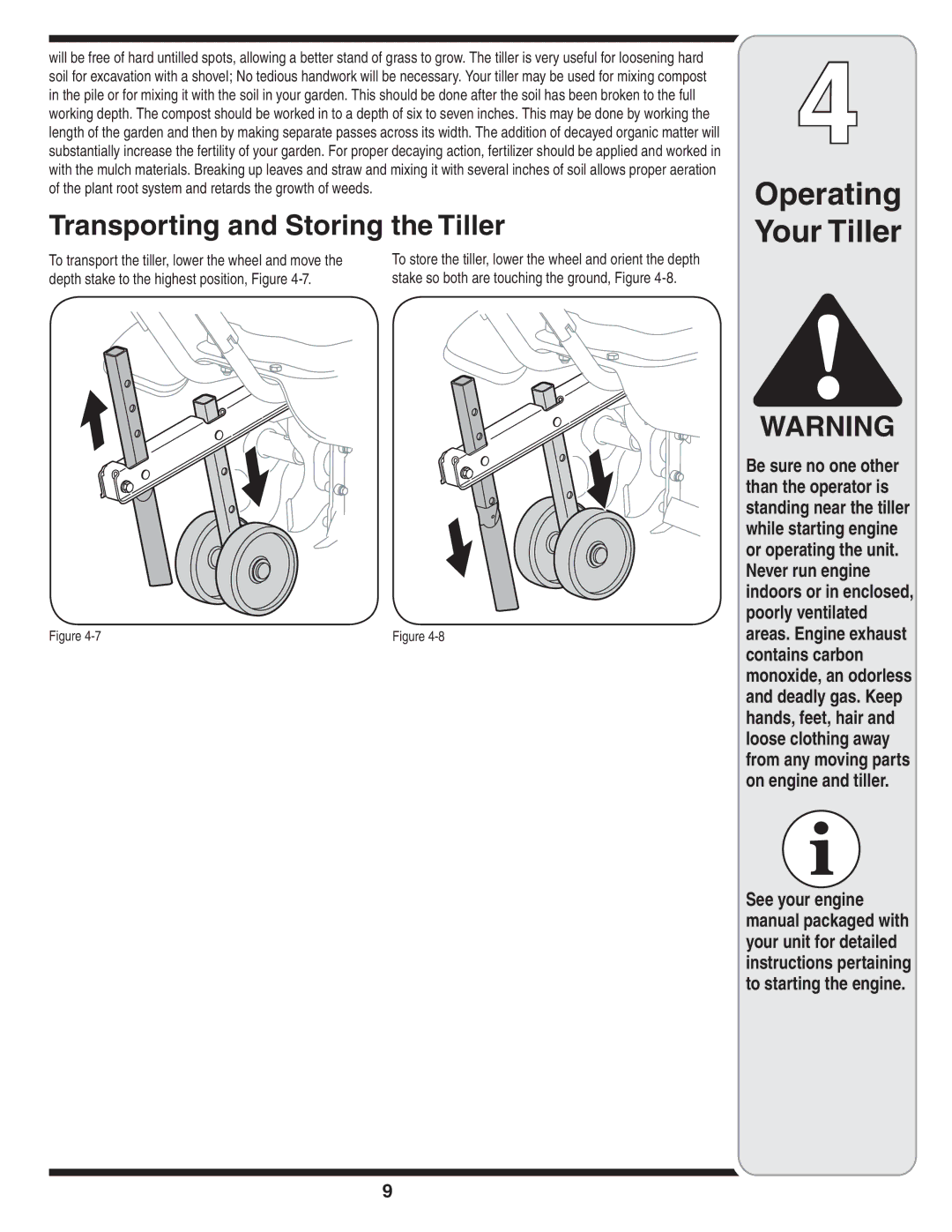
will be free of hard untilled spots, allowing a better stand of grass to grow. The tiller is very useful for loosening hard soil for excavation with a shovel; No tedious handwork will be necessary. Your tiller may be used for mixing compost in the pile or for mixing it with the soil in your garden. This should be done after the soil has been broken to the full working depth. The compost should be worked in to a depth of six to seven inches. This may be done by working the length of the garden and then by making separate passes across its width. The addition of decayed organic matter will substantially increase the fertility of your garden. For proper decaying action, fertilizer should be applied and worked in with the mulch materials. Breaking up leaves and straw and mixing it with several inches of soil allows proper aeration of the plant root system and retards the growth of weeds.
Transporting and Storing the Tiller
To transport the tiller, lower the wheel and move the | To store the tiller, lower the wheel and orient the depth |
depth stake to the highest position, Figure | stake so both are touching the ground, Figure |
Figure | Figure |
4
Operating Your Tiller
WARNING
Be sure no one other than the operator is standing near the tiller while starting engine or operating the unit. Never run engine indoors or in enclosed, poorly ventilated areas. Engine exhaust contains carbon monoxide, an odorless and deadly gas. Keep hands, feet, hair and loose clothing away from any moving parts on engine and tiller.
See your engine manual packaged with your unit for detailed instructions pertaining to starting the engine.
9
